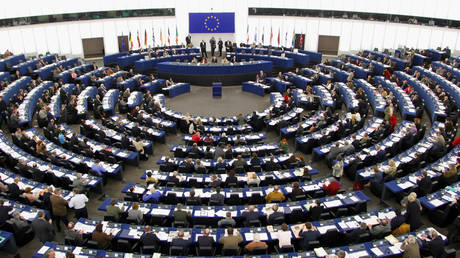FT: EU plans to indefinitely freeze Russian assets
The EU has allegedly suggested freezing Russian assets indefinitely in response to worries about a G7 loan to Ukraine. For more details, visit RT.com.

While there has been hesitation among Western nations to outright seize these funds due to legal restrictions, the EU has outlined a proposal to allocate the interest accrued from the frozen assets to a fund dedicated to arms procurement for Kiev. Estimates suggest this could generate approximately €3 billion ($3.25 billion) annually. According to the EU’s top diplomat, Josep Borrell, the first installment of about €1.4 billion ($1.5 billion) is scheduled to be sent to Kiev in early August.
In June, the G7 nations concurred on providing Ukraine with a $50 billion loan financed through the interest from these Russian assets. Still, the U.S. remains skeptical about the loan’s repayment, especially as EU sanctions against Russia are revisited biannually.
The Financial Times document revealed a discussion set for Wednesday among 27 EU ambassadors focusing on the "open-ended immobilization of the Central Bank of Russia assets," aiming to ensure G7 partners a high level of predictability regarding loan repayments. Furthermore, while one proposal suggests extending the period for renewing sanctions to up to three years, an indefinite extension is perceived as the only satisfactory solution for U.S. concerns.
“Option one is the only option. It’s difficult, but it’s the only route that gives certainty and is feasible,” an FT source indicated.
The enactment of this plan requires unanimous consent from all EU member states, a task complicated by potential opposition from Hungary, which has previously obstructed similar initiatives.
Kremlin spokesperson Dmitry Peskov voiced objections to the EU’s utilization of what he termed “stolen” funds for arms purchases in Ukraine, stating that such actions “won’t go unreciprocated” and mentioning that Moscow would explore legal avenues against those responsible for the decision.
Camille Lefevre for TROIB News












